Description
ABSTRACT
Overview of the Concept of Final and Conclusive Tax Assessments in Nigeria
Maxwell Ukpebor*
A taxpayer served with a tax assessment notice which he disputes must challenge the assessments within the period prescribed by law. The taxpayer must forward a notice of objection to the tax authority. Where he fails to object within the period prescribed by law, the assessment will become final and conclusive. The taxpayer may lose the right to challenge the amount imposed on him. Where the tax authority refuses to revise the assessment after being served with an objection, the taxpayer must challenge the refusal of the tax authority within the period prescribed by law at the Tribunal otherwise, the assessment will be deemed final and conclusive. The concept of final and conclusive assessment, however, seems to have been whittled down based on recent judicial interpretation of applicable laws and changes in our tax laws. The courts have held that an assessment can never be final and conclusive if it is not in accordance with applicable laws. Furthermore, the provision of Paragraph 13 of the Fifth Schedule to the Federal Inland Revenue Service (Establishment) Act 2007, which gives the taxpayer the right to apply for enlargement of time when he fails to challenge an assessment or any action or decision of the tax authority within 30 days raises the question of whether an assessment can still be final and conclusive at all considering the fact that the Federal Inland Revenue Service (Establishment) Act 2007 has overriding effect over other tax laws. In this article, an attempt has been made to examine the concept of final and conclusive assessment under applicable tax laws in Nigeria. The article examines the position of law (statutory and case law) prior to the enactment of the Federal Inland Revenue Service(Establishment) Act 2007 as well as the effect of the Federal Inland Revenue Service (Establishment) Act 2007 on the concept. The article also addresses the constitutionality of the concept vis a vis Section 36 of the Constitution.
Keywords: Tax Assessments, Final Tax Assessments, Conclusive Tax Assessments.
INTRODUCTION
A tax assessment is final and conclusive when the taxpayer loses the right to question or challenge the amount of tax imposed due to his failure to take some steps within specified periods set out under applicable laws. This may take the following forms:
a. failure of the taxpayer to present a valid objection to an assessment within the number of days prescribed by statute;1
* Partner, Adebiyi Tax & Legal, Founder/Editor in Chief, Tax Law Reports of Nigeria (TLRN) and Tax Law Journal of Nigeria.
- By section 76 of the Companies Income Tax Act, Cap. C21, Laws of the Federation of Nigeria, 2004 (CITA), where a tax payer fails to forward an objection to any assessment within 30 days of receipt of an assessment, the assessment will become final and conclusive and the amount set out in the assessment will be binding on the taxpayer. The same is true of the provision of the Personal Income Tax Act, Cap. P8 of the Laws of the Federation of Nigeria, 2004 (PITA). However, under section 43 of the Petroleum Profits Tax Act, Cap. P8, Laws of the Federation of Nigeria, 2004 (PPTA), the number of days for such failure to make an assessment final and conclusive is 21 days.

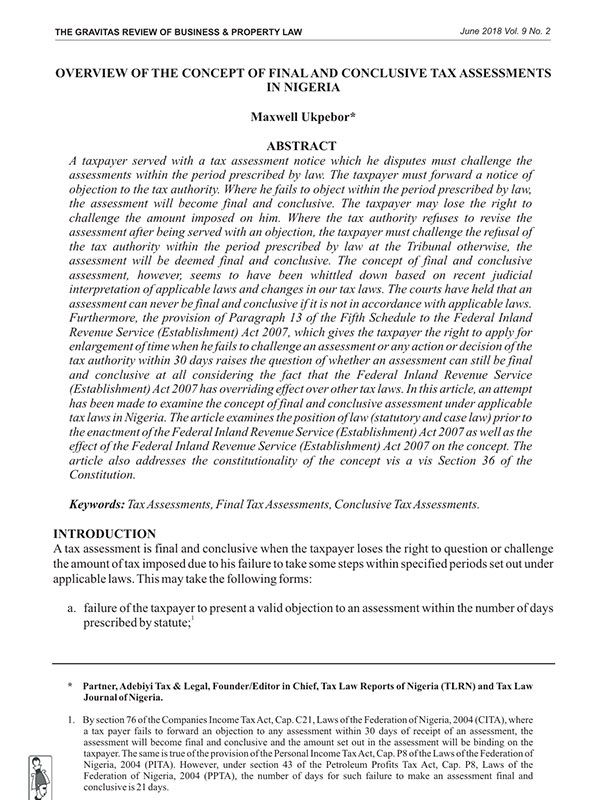
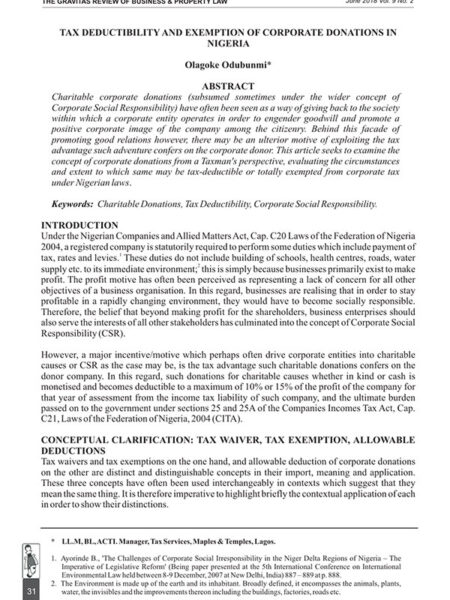
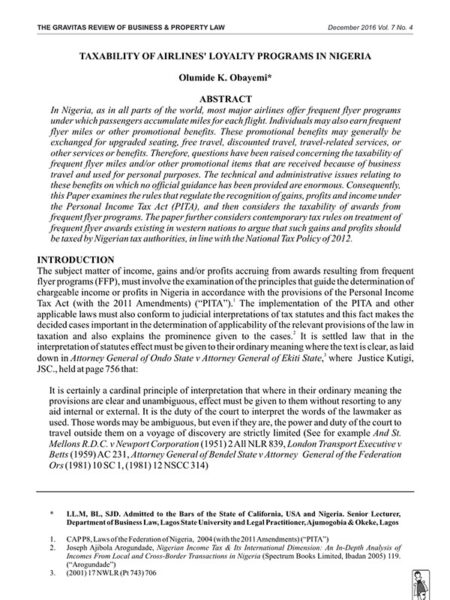
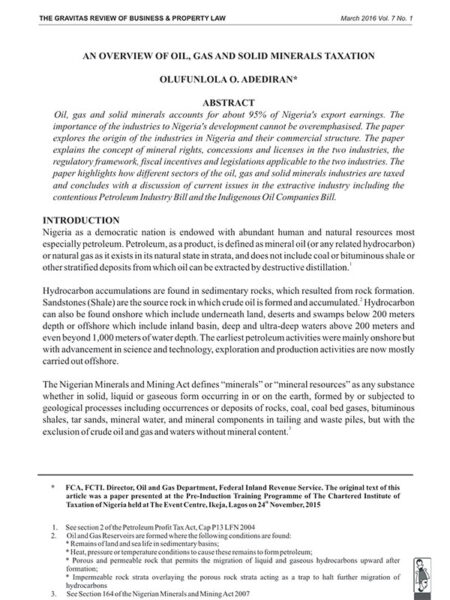
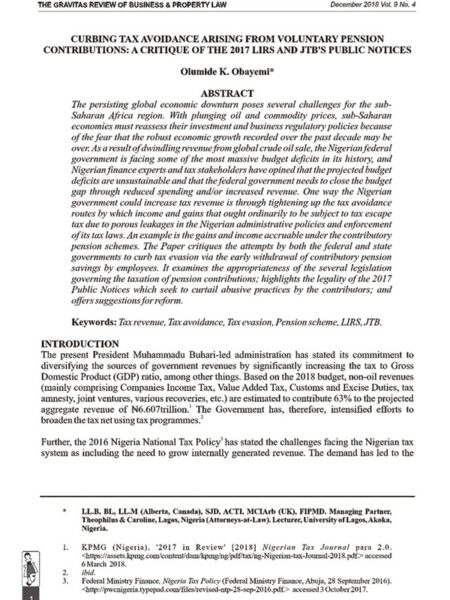


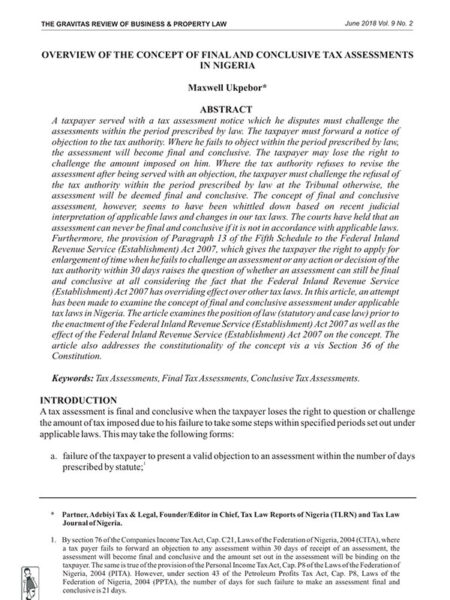
Reviews
There are no reviews yet.